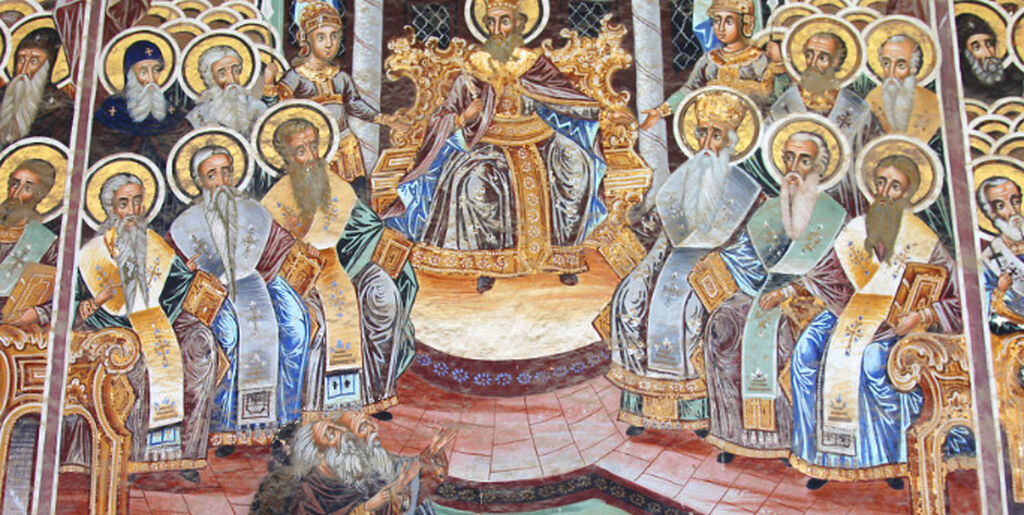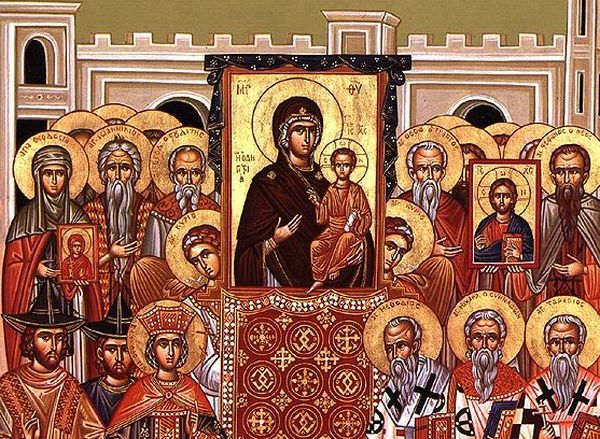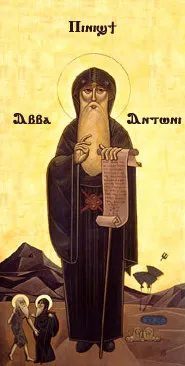Quinisext Ecumenical Council
61. Those who consult soothsayers or so-called "hecantontarchs" of other such fortune-tellers in the hope of learning from them whatever may be revealed to them, in accordance with what the Fathers had formerly decided in regard to them, let them incur the canon of six years. The same penalty ought to be inflicted also upon those who lead bears after them, or other such animals, for the purpose of sport and harm of the more simple-minded, and who tell the fortune, and fate, and genealogy, and other such things to the populace, in accordance with the rigmarole of delusion. As for those who are called cloud-chasers and enchanters and amuletics and soothsayers, if they persist in these professions, and refuse to change their occupation and to eschew these ruinous practices and Greek "rackets," we decree that they be thrown out of the Church altogether, in conformity with what the sacred Canons also prescribe. "For what communion hath light with darkness?" as the Apostle says; "or what agreement hath a temple of God with idols? Or what portion hath a believer with an infidel? And what concord hath Christ with Belial?" (II Cor. 6:15–16).
Interpretation.
Christians must not affect any of those wicked things which the Greeks used to affect — divination, that is to say, and charms, and other similar things. On this account the present Canon decrees that those Christians shall be compelled to abstain from the communions for six years who consult soothsayers, and men calling themselves hecantontarchs, and others of the kind, with a view to learning from them whatever occult things they wish (in order to find money or other things they have lost, for instance), just as previous Fathers have canonically penalized them. It also in like manner with the above canonizes for six years also those who drag bears or other such animals along with them for sport and harm of simple-minded persons; and also those who tell fortunes of men and what they are to get in the future and that they were born on a lucky or unlucky day and other such delusive sayings. It likewise canonizes also those persons who were called "cloud-chasers," and "enchanters," and "amuletics" and soothsayers. Accordingly, all of them are to receive this canon if they repent and abandon such ruinous, devilish, and Greek "rackets." If, however, they persist in this wickedness and delusion, and do not give it up, they are to be driven away from the Church of Christ altogether and are to be excluded from the society of Christians, just as the divine Canons prescribe. For what communion has light with darkness? or what union has the temple of God with the altar of idols? what portion has a believer with an unbeliever? or what concord has Christ with the Devil, as St. Paul says? But we must note that the penalty provided by the present Canon is provided for laymen only, as much for those who perform such diabolical works and magic as we have enumerated above, as for those who consult them. For any clergymen and persons in holy orders that should do such things would surely be deposed from office, according to Balsamon and Zonaras, without fail.
Concord.
As regarding persons engaged in divination and following Greek customs, and bringing wizards to their homes in order to discover the bewitchments certain persons may have cast a spell upon them, the Fathers of the Council in Ancyra canonize them five years in their c. XXIV, while Basil the Great makes it six in his c. LXXXIII, which this Council followed mentioning as previous Fathers both him and those in Ancyra. Canon XXXVI of Laodicea expressly throws out of the Church those who wear amulets, and prohibits clergymen and priests from becoming wizards, or enchanters, or mathematicians, or astrologers, and from making amulets. It is mainly this Canon that the Council is referring to in saying "in conformity with what the sacred Canons also prescribe, but perhaps it is referring also to the ones following. For c. III of Nyssa decrees that those who go to fascinators and soothsayers must be well questioned, and if it turn out that they became small-souled (or pusillanimous) as a result of being forced by any unendurable necessity and were deluded by such men, they are to be more leniently dealt with (or canonized), just as are those who have been induced by tortures to deny Christ. But if it be as a result of their having flouted the faith of Christ and of their having failed to believe that Christ is a God and well able to free them from every ill plight and calamity, they are to be canonized like those who have voluntarily denied Christ, which is the same as saying, that they are not to commune throughout the duration of their lifetime, unless at last they separate from the Church, and pray only by themselves alone, as the same Gregory of Nyssa in his c. II plainly states this. But also c. VII of Basil also in dealing likewise with those Christians who have sacrificed to idols and have consequently been separated from the Church of Christians, penalizes sorcerers. The same Basil, on the other hand, in his c. LXV canonizes as willing murderers those who declaim about the fascination and sorcery which they have practiced, and also those who give themselves to soothsayers in his c. LXXII.





